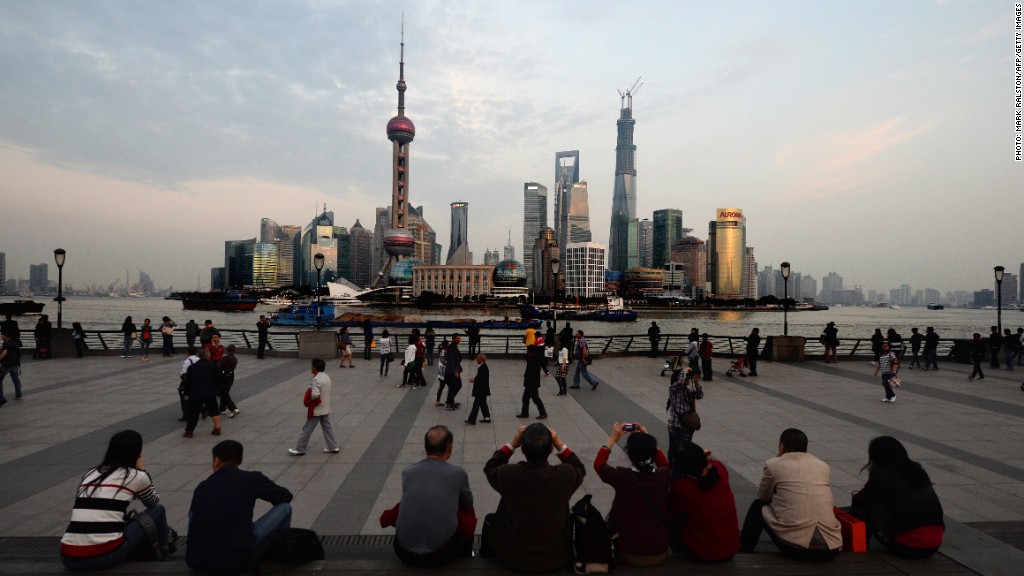
Americans may be startled to wake up Wednesday to news that China will soon have a larger economy than the United States.
The basis for this claim is new data from a statistical program run by the World Bank that suggests China's rapidly-growing economy is much bigger than previously thought.
Caveats abound, however.
The data, published by the International Comparison Program, relies on a way of calculating the real cost of living known as purchasing power parity. The idea is to compare economies around the world while accounting for changes in exchange rates.
By this measure, China's economy was 87% the size of the U.S. economy in 2011, putting it on track to claim the top ranking in the near future.
But if a straight comparison of gross domestic product is used, the $17 trillion U.S. economy is around twice the size of China's reported GDP. While China's economy is growing fast, it will still take years for the U.S. to lose its top spot by this measurement.
China also lags far behind when its population of 1.4 billion is taken into account. The country ranked 99th in the ICP comparison of GDP per capita, while the U.S. came in 12th.
Related: World's largest economies
So what to make of all this? Probably not much.
Comparing the size of economies is difficult, in part because different countries maintain (and sometimes manipulate) their own currencies. Fluctuations in currencies can make economies appear larger, even if there has been no change in the quantity of goods or services produced.
For example, imagine two countries with identical GDPs. If one country's currency strengthens by 10%, it does not follow that its economy is now 10% larger than its counterpart.
By using purchasing power parities to calculate the size of economies, ICP tries to take these fluctuations into account in its comparisons.
This method has its advantages, and is often used to gauge poverty in the developing world. But it also produces a significant margin of error, and is not the final word on economic might.


